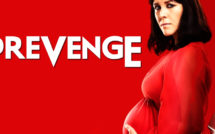
I’m a straight, white, male, Brooklynite attorney in his early thirties. I was raised by two avowed feminists in an affluent Philadelphia suburb. I studied at elite universities and always took pride in representing progressive viewpoints to my friends and classmates. I tangle with conservatives on social media. I donate to Planned Parenthood. I worked the polls for Hillary. I am, to be sure, a pure embodiment of the self-satisfied limousine liberalism that the right loves to pillory.
And sometimes, without meaning to be, I’m a misogynist.
That realization didn’t come easily, or without casualties. I recently had drinks with a female friend who is always up for a spirited debate. As it sometimes does, our conversation soon turned to feminism and gender relations. I made some pithy points about the hypocrisy of men leveraging their supposed feminism to social and sexual advantage, and was feeling proud of my bona fides as a particularly woke ally.
Then, amid our discussion of a favorite podcast, I took issue with the characterization of mid-century movie stars as “womanizers,” arguing that the term unfairly denies women sexual agency. My friend offered that women, now and especially then, often do lack sexual agency, and that her own experience in a much more enlightened world belied my point about Hollywood in the forties.
Enjoying the back-and-forth and reaching for a rhetorical win, I proceeded to coolly needle away at every aspect of her response, never pausing to seriously consider what she was telling me, what might be informing it, or how my words were landing.
Until I saw the tears in her eyes, I didn’t understand that we were having two very different conversations. I was deploying all my lawyerly acumen to win a narrow intellectual debate about the meaning of a word. She was expressing her discomfort at my unintentional but very real trivialization of the female experience in general, and her’s in particular.
Bulldozing ahead without regard for the value of her lived connection to the subject at hand was a failure of empathy, and a particularly myopic example of the hollow male “feminism” that I had ridiculed minutes earlier.
For men like me, there can be a seductiveness to approaching gender issues at an intellectual remove. It permits us to critique the patriarchy without emotionally reckoning with our place in the systems that perpetuate it. But the ability to step away is an expression of the privilege that those systems entail, and I’m ashamed that it took hurting a friend to make me see that.
I don’t like to speak for others or claim special knowledge in the subject area, so I will just ask the question: have other males out there had similar experiences? Have you ever hurt a female friend by forgetting that women’s issues aren’t just theoretical abstractions, but deeply-felt realities playing out in every conversation—even conversations with woke-ass dudes like you? And if so, what can we learn about how to hold discussions that enlighten, connect, and support instead of hurt, offend, and disengage?
I’ve apologized to my friend, and I hope that she forgives me. In the meantime, the best I can do is take her suggestion to quiet down, listen to the people I purport to champion, and bear in mind that, to half the world’s population, these issues are more than debates to be won.
Photo by freestocks.org




